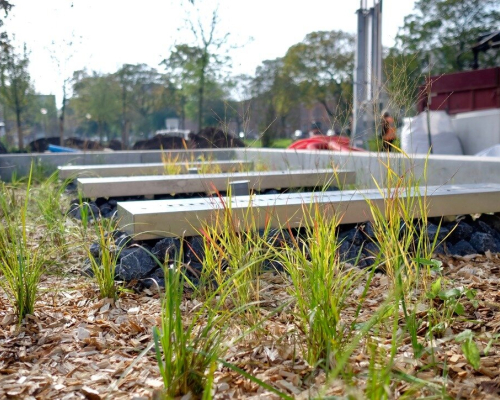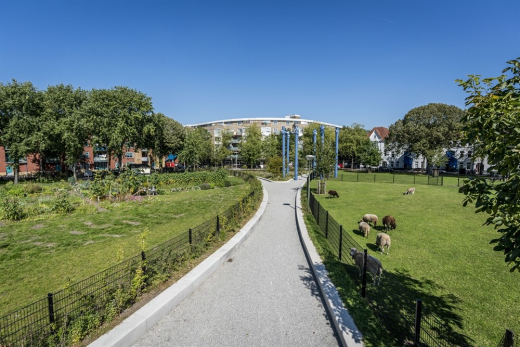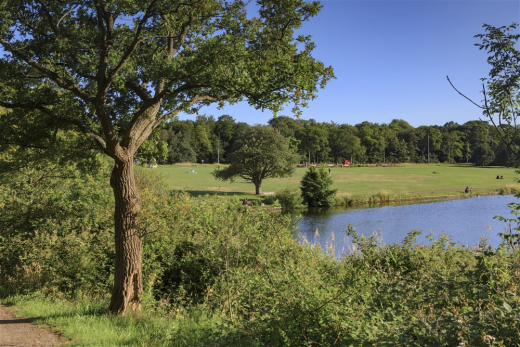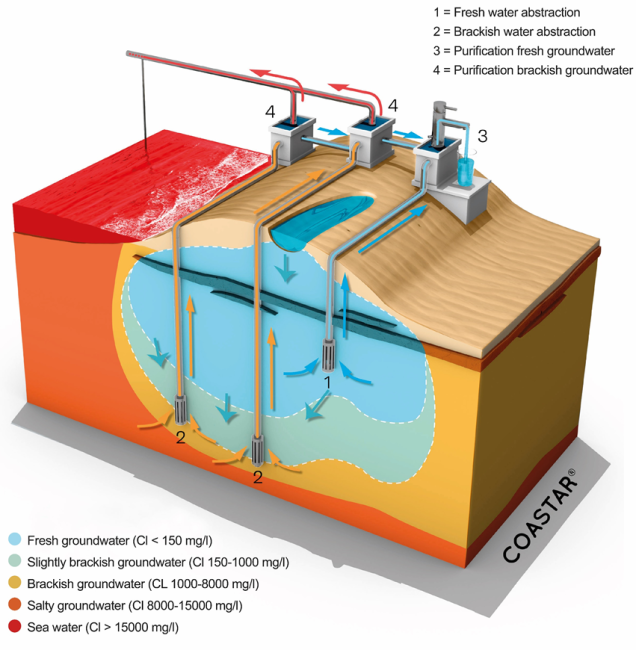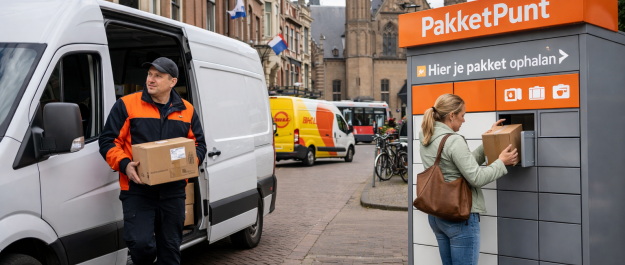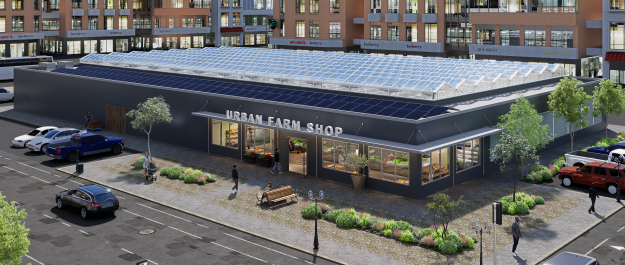As of January 2025, The Hague will join the EU Urban Agenda Thematic Partnership on “Water Sensitive City.”
Water management
This collaboration unites twenty two cities, national governments, EU bodies, and knowledge institutions in a two-to-three-year initiative aimed at enhancing legislation, sharing knowledge, and improving financing in water-related fields. Twente and The Hague are participants from the Netherlands. The partnership emerges from the Urban Agenda for the EU and signifies The Hague’s growing role in addressing urban water challenges.
Water management is a pressing issue for The Hague and many other areas around the globe. Over 90% of the city’s drinking water comes from river sources, which face increasing pollution and more often lower levels. Additionally, as a densely populated coastal area, The Hague is particularly vulnerable to heavy rainfall, urban heat areas, and rising sea levels. These challenges require innovative solutions that balance urban development, agriculture, and biodiversity.
Participation in the UAEU Thematic Partnership aligns with The Hague’s ambitions to address water scarcity and urban development conflicts:
water scarcity impacts plans for housing projects, necessitating solutions that integrate municipal and EU-level policies.
"Water is the lifeblood of our city, but it is under increasing strain. To safeguard our future, we must invest in resilient systems that can withstand both scarcity and surplus, ensuring that The Hague remains a safe and sustainable place to live for generations to come. We are looking forward to sharing knowledge and cooperating with other cities."
Much of the legislation on water issues originates from the European Union. The EU is increasingly focusing on the topic of water, and in December 2024, a European Commissioner for Water was appointed for the first time. By engaging at the European level, The Hague aims to shape policies that align with local, regional and international needs.
The Hague’s involvement in this partnership builds on its broader commitment to water resilience. From participating in the Delta Programme for Freshwater to working with European organizations such as the Committee of the Regions, The Hague demonstrates a strong focus on sustainable water management like:
Urban Water Buffer Cromvliet park
The Hague has developed an innovative waterbuffer in the Cromvliet park, as part of the European Nature Smart Cities Interreg project. The waterbuffer collects and purifies rainwater, with the aim to subsequently store the water deep below the surface. The waterbuffer not only collects rainwater falling in the immediate vicinity; rainwater falling on the rooftops of surrounding buildings is also directed to the Urban Waterbuffer. The waterbuffer is currently awaiting for approval before it becomes fully operational.
Delta Programme for Spatial Adaptation
The Hague is a member of the Delta Programme for Spatial Adaptation, collaborating with the district water board and provincial government. Together, they focus on conducting stress tests, identifying vulnerabilities, and developing a shared water agenda.
VPdelta Programme
The Hague is part of the VPdelta Programme, established by the TU Delft. This programme brings together a wide range of partners to develop innovative solutions for climate adaptation and water management. Additionally, The Hague contributes to knowledge exchange with educational institutions by supporting guest lectures at Haagse Hogeschool and TU Delft.
Integrated cross-sectoral water strategy
In 2024, Deputy-Mayor Robert van Asten was shadow-rapporteur on a Committee of the Regions report about water management. The Hague called for an integrated cross-sectoral water strategy, improved EU governance, adopting a Water and Soil-driven approach, better taxation of large water consumers, and improved legislation on river water that flows across countries.
This collaboration is not only about addressing current water challenges but also about ensuring that urban policies, biodiversity, and public needs harmonise in a rapidly changing climate. By leveraging its expertise and EU connections, The Hague is shaping itself as a water-smart city and a model for others to follow.
Read more

IHE Delft Institute for Water Education
Water poses a serious challenge to every part of the world. Too many people remain without access to water and sanitation. This makes their lives difficult: their health suffers, and prosperity remains out of reach. Increasingly frequent and severe droughts and floods - a result of climate change - add to the challenge. At the IHE Delft Institute for Water Education, we work to change this. Our vision: a world free of poverty and injustice in which people manage their water and environmental resources sustainably and equitably.
The Freshman-project
Sweet and salt don't mix. Especially when the two are separated by brackish groundwater. How much brackish water is in between differs, but the existence is quite common along the coast. Can you use this water to make tasty and reliable drinking water out of it?
